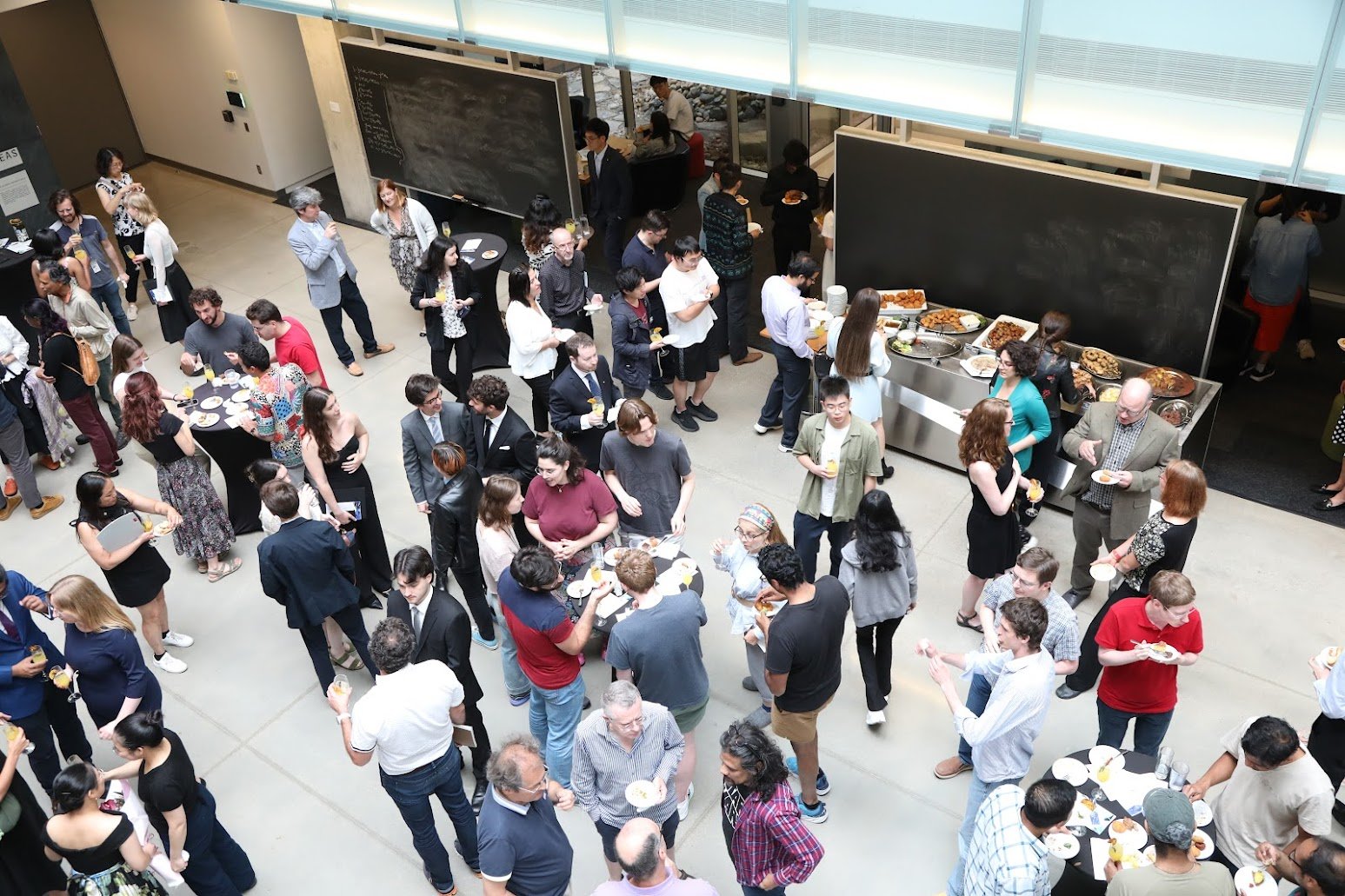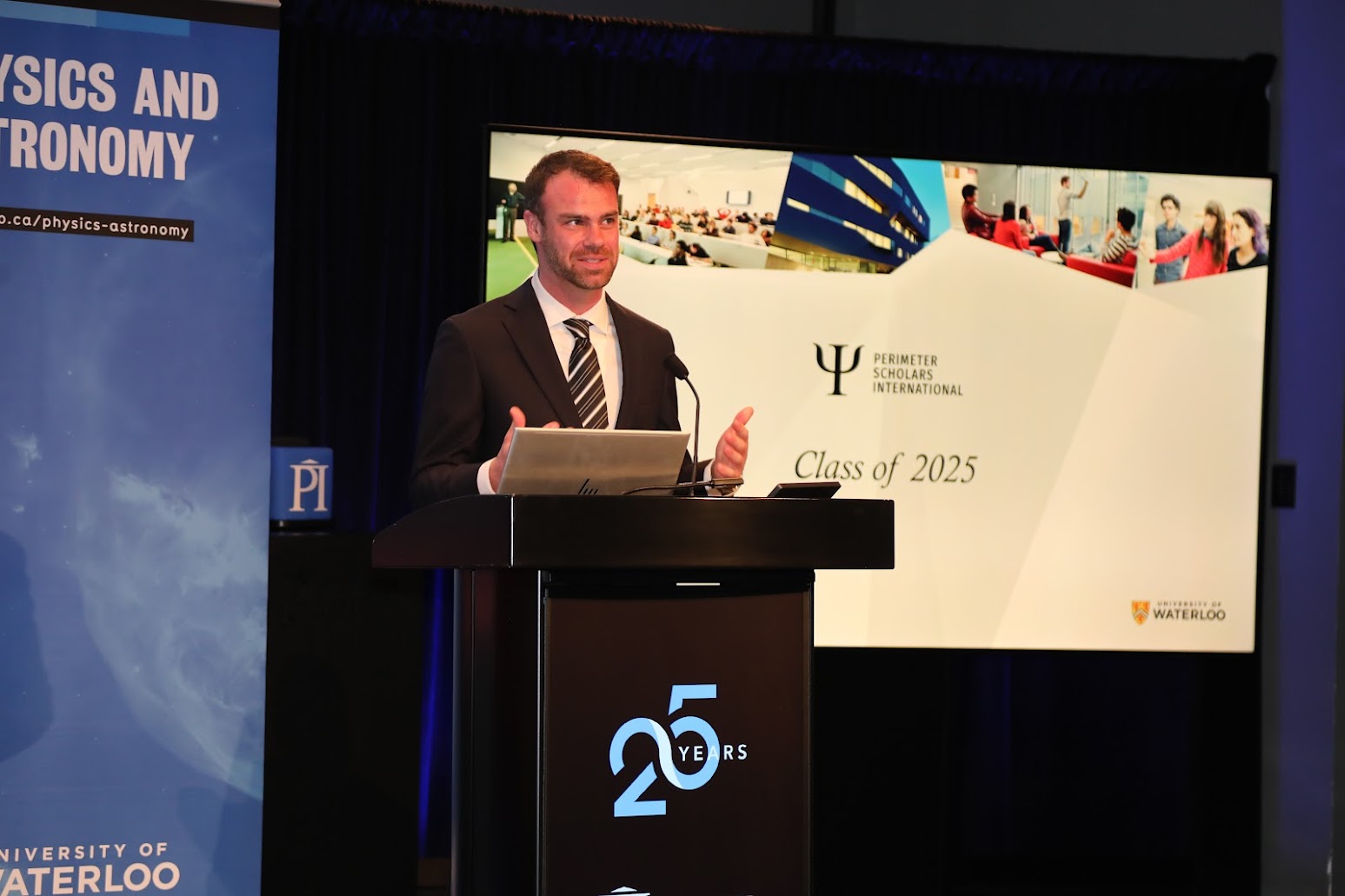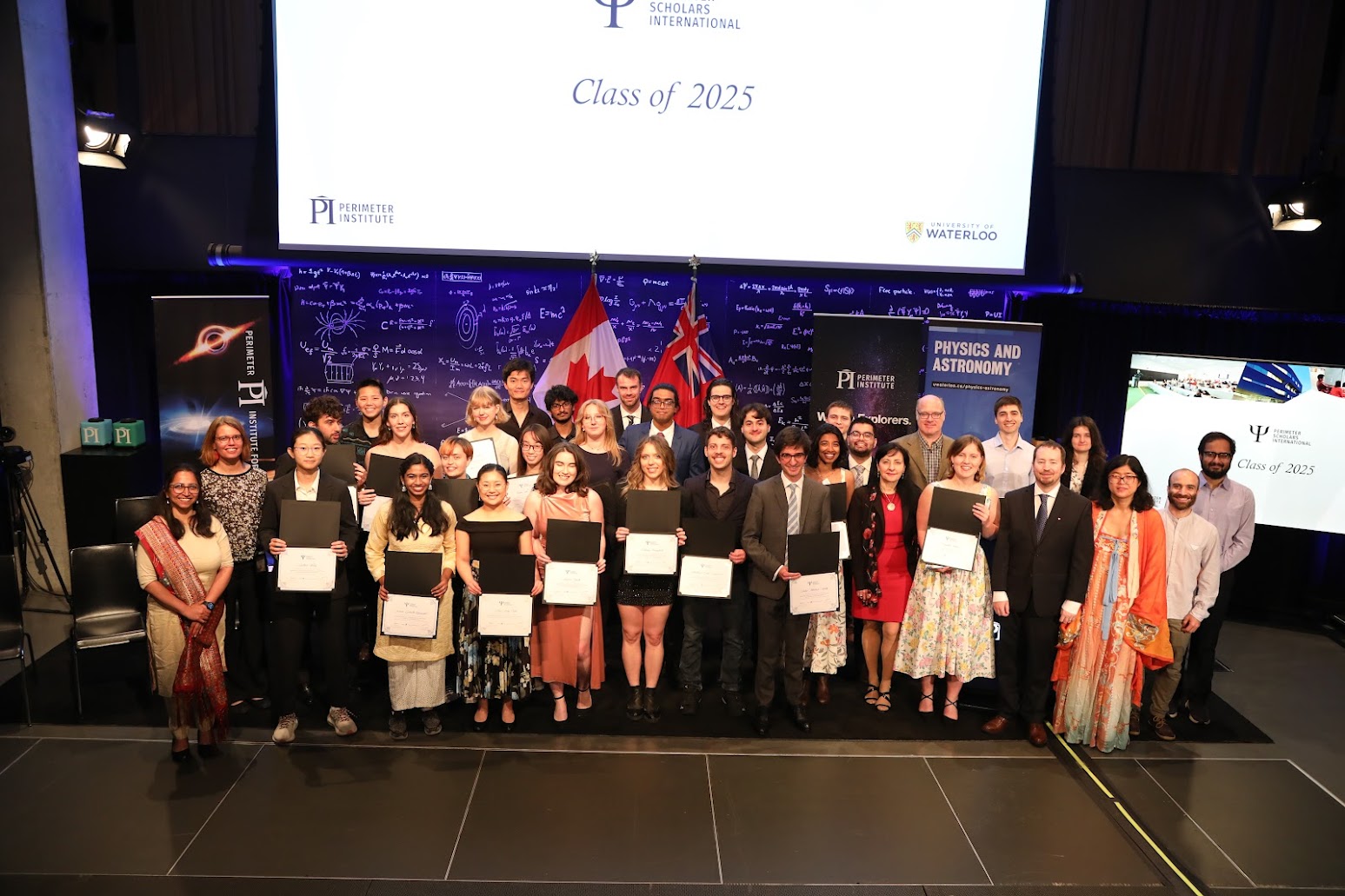On June 19th, Perimeter held the convocation ceremony for the 16th cohort of Perimeter Scholars International (PSI), the graduate-level program run in partnership with the University of Waterloo. For the past ten months, the 25 PSI students have crowded around chalkboards, explored Southern Ontario, and taken a deep dive into the full breadth of theoretical physics.
“The most important lesson PSI taught me is that good physics often needs to be accompanied by lots of living, too,” said Lizzie Wilson, who spoke to the graduates along with her classmate Besart Lajci.
The class took every opportunity to do lots of living while here at PI. On top of the annual traditions like the PSI winter school outings, the class bonded both in and out of the PI building. “At the start of the year, we were strangers from across the world, brought here by common love for physics and learning,” said Wilson. “For 10 months, we have lived together, eaten together, learned together, worked together, tried, failed, and succeeded together.”
“There was never a moment where I felt like I did not belong when we got together,” Lajci said in his speech. “The greatest thing was that everybody brought their own random thing to do. Some people brought in chess, other people danced, and many of us also played games.”
This year’s PSI students came from 16 countries across four continents. Now, they step into the next stage of their journey. Some are taking a gap year, others are working as research scientists, and many of them are moving into their PhD, either here at Perimeter or at prestigious institutions across the globe.
Alex May, who taught the PSI Quantum Information class, addressed the students in a keynote address. Despite never teaching a class before, May received the highest rating from students for a first-time lecturer. “Being with this class made it easy and enjoyable,” he said before telling them to enjoy their next steps and consider their place in the larger physics community.
“I hope you’ll keep the responsibility to build a strong physics community in mind throughout your careers,” May said. “Physics is a fantastic community, which I love and has given me a lot of the best experiences in my life. My ask of you is to please take care of it.”
Perimeter Executive Director Marcela Carena offered her congratulations at the ceremony and helped deliver the graduates their degrees. She encouraged the students to use physics to connect and build community while reminding them that they always have a place at Perimeter. “Wherever this next stage takes you, please stay connected and come back,” she said. “PI will always remain your home.”
Both Lajci and Wilson reflected on the unique opportunity that PSI provided. “I have never seen a collective building with various moving parts so invested in the success and wellbeing of 25 random people,’” said Lajci. “Maybe the purpose of PSI is ‘Here's a sandbox, a bunch of love and support, and resources. Build, take and interpret whatever you want out of it.’
“I know that you're all going to build off this momentum and do amazing things, and I look forward to seeing it all. I'm so proud.”
About PI
Perimeter Institute is the world’s largest research hub devoted to theoretical physics. The independent Institute was founded in 1999 to foster breakthroughs in the fundamental understanding of our universe, from the smallest particles to the entire cosmos. Research at Perimeter is motivated by the understanding that fundamental science advances human knowledge and catalyzes innovation, and that today’s theoretical physics is tomorrow’s technology. Located in the Region of Waterloo, the not-for-profit Institute is a unique public-private endeavour, including the Governments of Ontario and Canada, that enables cutting-edge research, trains the next generation of scientific pioneers, and shares the power of physics through award-winning educational outreach and public engagement.


